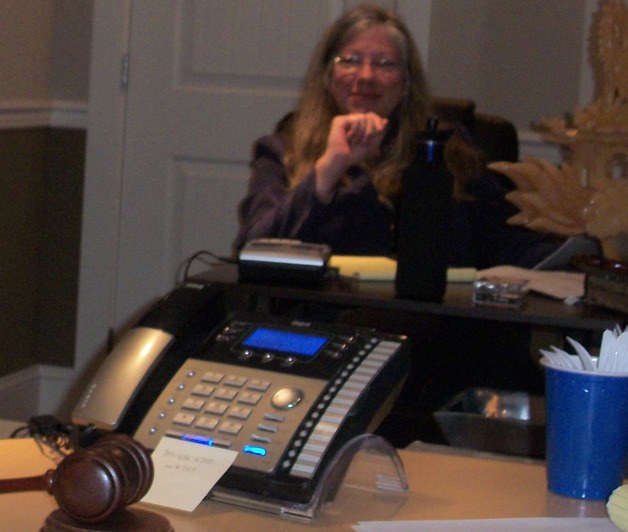The Port of South Whidbey took a step into the future Tuesday by allowing Commissioner Chris Jerome to fully participate by telephone all the way from Montreal, Canada, where he was attending a business conference.
Commissioners Curt Gordon and Dennis Gregoire were physically present at the meeting listening to Jerome’s comments from afar. Jerome was allowed to vote on items, on condition that such long distance voting is legal. The commissioners were unsure at the time.
However, they went on to change the port’s bylaws dealing with quorums, which was that a majority (in this case two) of the commissioners must be present to conduct business. “A quorum shall consist of a majority of those persons holding the office of port commissioner,” states the old bylaw.
The commissioners added to the old bylaw that a quorum exists if a commissioner is participating by phone, the computer program Skype which allows visual contact with the absent commissioner, or some other electronic connection. Jerome joined Gordon and Gregoire in supporting the motion.
The commissioners had nothing to worry about in allowing the physically absent Jerome to participate in the meeting, according to one of the state’s leading authorities on the Public Open Meetings Act.
“It is legal,” Tim Ford, the state attorney general’s ombudsman on open government, told the Record on Wednesday. “Nothing prohibits using Skype or other technology.”
Ford said it would even be legal for all three port commissioners to hold a meeting from different locations as long as there’s a place where the public can hear what’s going on. On Tuesday, that place was in an office below the China City restaurant in Freeland.
“If it’s a completely virtual meeting there has to be a place to view it,” Ford said. “The public has a right to view.”
Such “virtual meetings” are becoming more common as technology advances. The city of Oak Harbor recently passed an ordinance allowing absent council members to fully participate in its meetings electronically.
Langley also passed a “remote ordinance,” but it hasn’t yet been implemented.
“We haven’t pulled the trigger on it,” Mayor Larry Kwarsick said Thursday. Kwarsick said the city needs to acquire technology to implement the ordinance, and that a primary purpose of Langley’s ordinance is to allow the public to view council meetings without actually attending. However, the ordinance also allows council members to participate from elsewhere.
“There have been no remote votes yet,” Kwarsick said.
Langley isn’t interested in conference phone calls, but in computer visuals that will allow absent council members to see other members, the public and any “visuals” that may be presented during discussion.
Kwarsick doesn’t see a time when a Langley city council meeting will consist of five computer screens featuring different faces sitting on a table in City Hall. “I have some reservations,” he said. If there’s a particularly controversial topic he would prefer that council members be physically present to deal directly with the public. “I set the agenda and I can decide when to use it,” he said of remote participation.
Although times are changing regarding who is really considered “at” a meeting, the U.S. Congress and Washington State Legislature still require in-person voting, but that could also change some day, according to Ford.
“They’ll just have to make their own rules,” he said.



